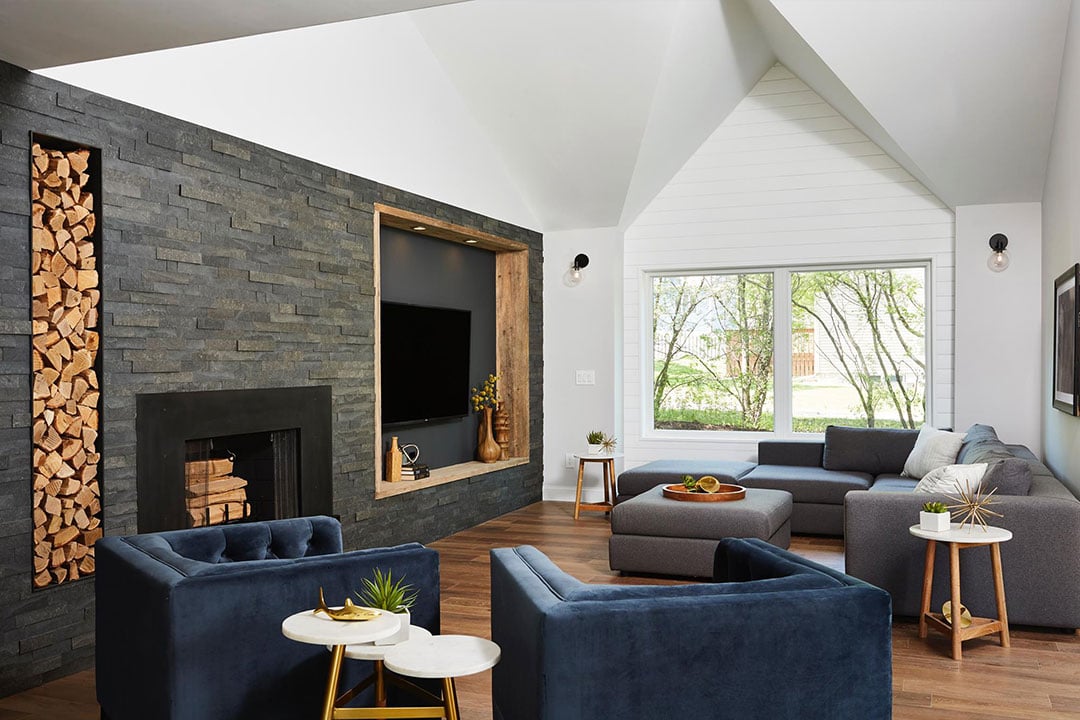
Flipping is an art. It requires skill and vision. For the right investor, it can be highly profitable. It can also be satisfying, creative work. Financing a flip is an art, too. Take house flipping finance 101 to learn about your funding options and why a creative relationship lender with real estate expertise may be the partner you need.
Why flip?
House flipping offers two main benefits: profit and creative satisfaction. The success of “Fixer-Upper” and other fix-and-flip programs shows the widespread appeal of seeing something dilapidated or bland become new and striking.
If you’re ready to start flipping, you may already be envisioning what certain houses could become. You may already sift through tile options in your mind on your commute. You may wonder, while you eat breakfast, whether wire-brushed or hand-scraped wood floors will be a good choice. Looking through your tools, you may be asking yourself if you’re ready to tackle cabinet installation on your own.
It’s best if the work itself appeals to you. Fixing and flipping isn’t an easy way to make money. Obviously, it’s not a passive investment. It involves a lot of labor. And buyers will only pay high prices if they like what you’ve done. Your chance of profiting goes way up if you like the work.
Even if you’re not doing the renovations yourself, you need to be engaged throughout the process. You need to make major decisions like these:
- What house has potential?
- What neighborhood will be most profitable?
- Which contractor does good work at a reasonable price in a timely way?
- What should the house look like when you’re done with it? (This really is the coordination of hundreds of smaller decisions.)
Of course, being creative doesn’t mean spending extravagantly. Obviously, without a tight rein on expenses, you can minimize your profit (or worse). But working within a budget is itself an art. As they say, “Necessity is the mother of invention.” Making a detailed budget is a necessity, but those budgetary constraints can challenge you to find creative solutions.
This way, you end up with a final product someone will want to buy at a good price. You’ll also be able to enjoy admiring your own work.
Who will help you flip?
Thinking in a careful, detailed way about budgeting is part of how to get a loan to flip a house. Knowledge of the real estate market and how to budget realistically for every phase of the flipping process shows lenders you’re someone worth investing in.
You have several financing options for flipping homes, even if you’re new. Here are a few to consider:
- Hard money loans: It’s not easy to get a traditional bank loan for flipping a house. Flipping is a higher-risk, shorter-term investment. Hard money lenders specialize in high-risk loans. They profit by charging high interest rates and fees. In some cases, they can be a good choice or even your only choice but consider other loan options first.
- Personal loan: Getting a traditional bank loan for house flipping can be hard if you don’t have a track record of success. It’s worth looking into, though. The obvious benefits are lower interest rates and standard terms.
- Home equity line-of-credit (HELOC): If you have significant equity in your home, you may be better positioned financially to start flipping. This is because you may be able to get a home equity line-of-credit. Funding a house flip this way offers flexibility—since you use what you need when you need it—and lower interest rates. You’re also able to pay off your loan when you sell the house you’ve renovated.
- 401k: If you’re relatively young, you can consider taking a loan from your 401k.
It’s vital to get good advice before deciding on a financing option. There can be significant risks. So find good advisors, including a consultative lender who knows the real estate market and has experience working closely with fix-and-flip borrowers.
By working with a relationship bank, opportunities open up. At Security, we focus on getting to know clients as individuals with unique needs. This enables us to create custom loans that may be the right fit for you.
So, don’t look at loan products in isolation. Focus on the kind of lender who can open up possibilities. A relationship lender with real estate expertise can better gauge risk. That means they’re better able to see what’s possible. Your creative vision can have a creative financial partner.
A creative consultant can create solutions
Flipping houses can be fun, satisfying work. If you’re good at it, it can be very profitable. And a creative lender can be the partner you need.
At Security Bank, we specialize in Minnesota real estate and Minnesota people. Whether you’re new to house flipping or an experienced veteran, we’d like to get to know you and your vision. Our purpose is to invest in local people who add value to our community. Because we know Twin Cities real estate and are committed to client relationships, we can create customized financing for your unique needs.
Through creative banking, we find solutions where other lenders only find limits.
Give us a call today. We’re always investing in you.
Photo credit: STR8 Modern, follow them on Instagram @str8modern










